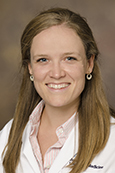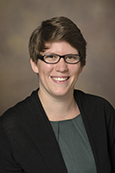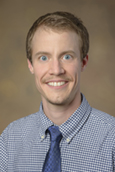Program Director
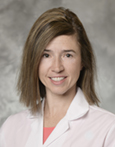 |
Elisa Gumm, DO No one choses addiction. Addiction is a chronic disease with a relapsing and remitting course that needs passionate, dedicated, empathetic physicians to treat it. I chose to treat addiction to fight the stigma which prevents physicians from getting trained, and patients getting treated. All patients deserve evidence-based care without barriers. |
Faculty
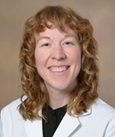 |
Melody Glenn, MD, MFA, Clinical Assistant Professor, Emergency Medicine & Psychiatry When I first began my career in emergency medicine, I did not realize that addiction was a disease, nor that it had effective treatment. We didn't learn much about addiction in medical school or residency, my EM textbook only devoting two pages to how to use to use naloxone to reverse an overdose. And so, I often felt frustrated and hopeless when interacting with patients who used drugs. But once I learned about buprenorphine and methadone and started to give it to eligible patients, that entire dynamic changed into one of extreme satisfaction. Starting someone on MAT offers a level of instant gratification rarely seen in medicine, especially when working with chronic diseases. And the more I worked in addiction, the more I realized it was the perfect conduit for practicing social justice, my initial goal when deciding to pursue a career in healthcare. If we really want to treat addiction, we must become more than just clinicians, we must become activists who advocate tirelessly for a population that is often stigmatized, racialized, and criminalized. |
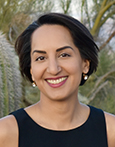 |
Jasleen Chhatwal, MBBS, MD, FAPA, Chief Medical Officer, Sierra Tucson Health conditions in human beings are as complex and multi-layered as humans themselves. Substance use disorders are no different. They need a bio-psycho-socio-spiritual understanding and a nurturing environment to help individuals move into recovery. Patient education and empowerment, reduction of self-stigma, use of evidence-based pharmacological and non-pharmacological interventions are at the core of my approach to addiction and its complications. As a psychiatrist and integrative medicine physician, I aim to help my patients overcome adversity, trauma and addiction to lead a wholesome, meaning-filled life. |
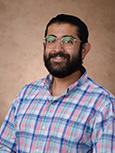 |
Sarthak Garg, MD
|
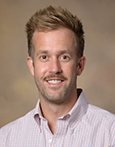 |
Mark Grant, MD In the clinical setting, I felt equipped with the skills necessary to help keep patients alive yet felt powerless on discharge knowing how unfairly the deck was stacked against them. In pursuing this fellowship in addiction medicine, I aspire to gain the knowledge necessary to reshuffle this deck: to provide evidence-based treatments that help patients overcome their addictions and start living again. In doing so, I hope to educate my peers, empowering them to begin to treat addiction and to restore dignity to where stigma once stood. |
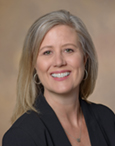 |
Alicia Hidalgo, MD As an internal medicine hospitalist, I encounter many patients with substance use disorder in my daily practice. In the inpatient setting, many physicians lack the training and comfort level to effectively address the needs of this patient population. Additionally, people who struggle with substance use disorder often face judgement based on biases and the stigma surrounding the disease. I chose addiction medicine because it is an underserved need in my primary patient population and also very satisfying for me professionally to serve these patients. My goal is to use the knowledge I gain and my expertise in treatment of patients and to educate my colleagues, residents, and medical students to diagnose and apply evidence-based care to the management of patients with substance use disorder. |
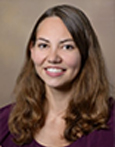 |
Alaina Martinez, MD The humility to listen and connect with someone’s values and humanity is at the core of my identity as a physician. Trained as a family medicine physician, I am drawn to people’s stories – and how they unfold. Addiction medicine training is vital to provide comprehensive, patient-centered care. By emphasizing addiction as a disease, not a moral shortcoming, we advocate for our patients to break through the shackles of shame and help them rediscover and reclaim their strength. Many patients with substance use disorders have experienced trauma in their lives, including within the healthcare system. Addiction and the symptoms that come with it are a manifestation of survival strategies and coping. Many providers are attempting to reshape and rebuild the healthcare system to provide accessible, high-quality, compassionate, and trauma-informed care for our patients. Thus, we can begin to overcome the fear and lack of knowledge that fester unfair stigma against those with addiction. I wish to be at the forefront of this cultural shift. |
 |
Daniel Murphy, MD I treat addiction because I believe everyone deserves a chance to reclaim their life and find hope again. Training in an Addiction Medicine Fellowship has greatly added to my ability and confidence as a physician to help people struggling with SUDs. Addiction is a complex, deeply human struggle, and helping others overcome it is both a responsibility and a privilege. I’m driven by the desire to support people through their pain, to walk with them toward healing, and to witness the strength and resilience that can emerge in recovery. |
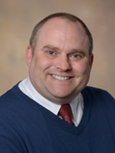 |
Spencer Roberts, DO Addiction is something that affects so many individuals, families, and communities and yet it remains one of the most stigmatized and least understood medical conditions around. I know that in both my personal and professional life I have witnessed the impact that substance use can have on loved ones. Fellowship training at the University of Arizona has allowed me to join in the success of patients as they have sought treatment and begun the road to recovery and healing. Additionally, it has been a pleasure and a boon to work with and learn from the diverse cadre of like-minded professionals who are all committed to making a difference in the lives of those who use substances. |
Current Fellows
 |
Mary Durfee, MD “The labyrinth is safe, but endless, and broken is Ariadne’s thread...” WH Auden’s poem, “The Casino”, resonates within me every time I care for a patient with a Substance Use Disorder. In trying to feel good, patients unwittingly cause neurologic changes which take them into a maze of suffering. To escape the metaphorical labyrinth, patients need doctors who are comfortable with medical and behavioral treatment for their neurologic disorder. Why would I turn down comfortable retirement to do a fellowship in Addiction Medicine? When I received a spiritual tap on the shoulder to stop being pushed to be a useful idiot for this or that political agenda, to reject the box-checking patient history format, and to embrace the humanity which initial drew me to medicine. I made the decision to be uncomfortable in the hopes that I can help patients out of the labyrinth of addiction.
|
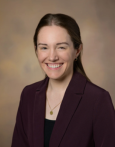 |
Kaylin Pennington, MD I treat addiction because it's deeply intertwined with systemic oppression and the profound impact of stigma, and I'm dedicated to meeting people where they are to help them navigate recovery. By embracing the diversity of addiction experiences, my goal is to support a variety of healing paths that honor each person's unique journey.
|
 |
Giuliano Scaini, DO There are many reasons I chose to pursue a career in addiction medicine, though one specific patient encounter during medical school stands out to me in particular. As a volunteer at a needle exchange clinic, I was working with a patient who had been injecting heroin into a vein near her ear and was beginning to lose her hearing. I immediately suggested that she present to the local emergency department for treatment, however she told me that based on her previous poor experiences seeking medical care she was unwilling to do so. She was tired of being treated like a criminal or an "addict" rather than as a human being in need of medical care and would have preferred to lose her hearing than subject herself to mistreatment again. I vividly recall how difficult this was for me to comprehend at the time, however many years later I now understand her experience was unfortunately far from unique and is emblematic of a much broader issue in medicine where patients with SUDs are often mistreated due to stigma, judgement, and a fundamental misunderstanding of the complex nature of SUDs. Being a strong advocate for patients who often have nobody to advocate for them and have been wronged by the medical system time and time again is one of the many reasons I love doing what I do. |
 |
Devin Smith, MD I have come to appreciate that addiction is a chronic illness that changes how our brains function. There is an unfortunate stigma associated with using drugs that works to keep people isolated and serves as a barrier to seeking treatment. Working in the emergency department, I frequently saw severe illness and the disruption of daily life affecting those who use drugs. I believe that it is important to push for greater understanding, compassion, and evidence-based treatment to bolster recovery for those struggling with substance use. Recovery is possible with the appropriate support and care. My goal is to continue to learn and grow so that I can meet people where they are and partner with them as they reclaim their lives.
|
Alumni
Class of 2025
 |
Sarthak Garg, MD
|
 |
Tianzhu (Kimi) Ge, MD Through my psychiatry residency training, I got the chance to work closely with a lot of patients who struggled with substance use problems along with their mental health struggles. I came to the realization that for most of these patients, their addiction to substances is more of a "symptom" of their deeply rooted trauma, which is often not discussed or understood. I developed a strong interest in working with these patients to help them with their addiction, as well as any underlying psychiatric issues they may have. |
 |
Daniel Murphy, MD I treat addiction because I believe everyone deserves a chance to reclaim their life and find hope again. Training in an Addiction Medicine Fellowship has greatly added to my ability and confidence as a physician to help people struggling with SUDs. Addiction is a complex, deeply human struggle, and helping others overcome it is both a responsibility and a privilege. I’m driven by the desire to support people through their pain, to walk with them toward healing, and to witness the strength and resilience that can emerge in recovery. |
 |
Emily Walker, MD I treat addiction because it is what is needed in my community. I was surprised by the lack of education and exposure that I received in medical training as it related to understanding and attending to those who suffer with behavioral patterns that we call "addiction." Our communities do not become healthier by turning a blind eye to problems that we don't understand or have inherited bias against. Therefore, I treat addiction to improve our community's ability to care for those who suffer with this burden. |
Class of 2024
 |
Alaina Martinez, MD The humility to listen and connect with someone’s values and humanity is at the core of my identity as a physician. Trained as a family medicine physician, I am drawn to people’s stories – and how they unfold. Addiction medicine training is vital to provide comprehensive, patient-centered care. By emphasizing addiction as a disease, not a moral shortcoming, we advocate for our patients to break through the shackles of shame and help them rediscover and reclaim their strength. Many patients with substance use disorders have experienced trauma in their lives, including within the healthcare system. Addiction and the symptoms that come with it are a manifestation of survival strategies and coping. Many providers are attempting to reshape and rebuild the healthcare system to provide accessible, high-quality, compassionate, and trauma-informed care for our patients. Thus, we can begin to overcome the fear and lack of knowledge that fester unfair stigma against those with addiction. I wish to be at the forefront of this cultural shift. |
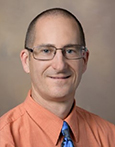 |
Michael Sheehy, DO As a practicing Emergency Physician for the last 20-plus years I have seen the daily effect substance use disorders have on my patients, their families, and my ED staff. During my EM residency, there was little to no training for addiction care except reversing opioid overdose and hoping the patients stayed long enough to prevent re-sedation after they left the ED. Throughout the early years of my practice in the ED, patients with substance use disorders were seen as fakers, drug seekers, and a waste of my precious time for other real emergencies. My eyes were opened to the fact that people with addictions were real people with a real disease who needed treatment. I also realized that the ED was the entry door for most patients to be seen and start treatment. For this reason, I want to take this opportunity to build the bridge between the ED and ongoing treatment, and to teach the next generation of Emergency Physicians, that they can and need to treat patients with addictions.
|
Class of 2023
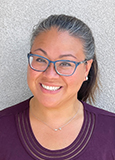 |
Karen Atencio, MD | Addiction Medicine Fellow As a Pain Management physician, the disease of addiction can be a hurdle for patients getting the pain management care they require. Patients with a substance use disorder encounter the fear of relapse and bias that they are drug seeking when pursuing pain management options. I chose to treat addiction in order to provide more comprehensive care for patients with chronic pain in the setting of the disease. I help support patients, families and members of the medical community in this complicated journey. |
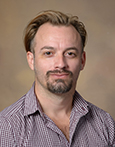 |
Justin W. Gause, MD | Addiction Medicine Fellow Addiction is an oftentimes misunderstood illness with frequently devastating consequences if not treated. It effects every aspect of an individual’s life and compromises every aspect of a person’s physical, mental, and socioeconomic wellness and stability. During my time in medical school and residency, I came to appreciate the substantial burden addiction has on the individual and on the community and healthcare system in general. My goal is to continue to offer compassionate care to those with addiction, raise community awareness and support for such individuals, and to work to dissolve the stigma associated with addiction. |
 |
Mark Grant, MD | Addiction Medicine Fellow In the clinical setting, I felt equipped with the skills necessary to help keep patients alive yet felt powerless on discharge knowing how unfairly the deck was stacked against them. In pursuing this fellowship in addiction medicine, I aspire to gain the knowledge necessary to reshuffle this deck: to provide evidence-based treatments that help patients overcome their addictions and start living again. In doing so, I hope to educate my peers, empowering them to begin to treat addiction and to restore dignity to where stigma once stood. |
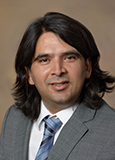 |
Muhammad Qasim Maqbool, MBBS | Addiction Medicine Fellow During my work experience in Hospital Medicine, I took care of patients who were admitted for medical complications due to substance use. I was not trained to take care of their addiction, which was the root cause of their medical condition. Addiction is a complex disease with relapsing and remitting course. I realized how it can devastate the lives of patients and their families when a close family member suffered from this condition. This intrigued me to get training to treat addiction. I have special interest in opioid management for patients who have been dependent on opioids due to pain related conditions. I plan to incorporate addiction medicine training not only to treat addiction but also opioid dependence due to chronic pain. |
Class of 2022
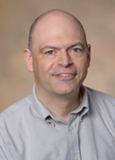 |
Chris Dixon, DO | Addiction Medicine Fellow As a family medicine physician practicing at a community health center in Tucson since 2009, I have seen many lives and families shattered by the effects of addiction. I chose to take a year off from my family medicine practice to complete an addiction medicine fellowship in order to learn how to better serve my patients who suffer with substance use disorders. As an addiction medicine physician, I play an active role in empowering my patients as they access effective treatment modalities that will help them throughout their journey of recovery. After completing the fellowship, I plan to return to the community health center setting where I hope to not only make a difference for my own patients but to provide guidance and education to other health care providers regarding evidence-based treatments for addiction. I also enthusiastically look forward to continuing to teach medical students throughout my career, sharing the knowledge I will gain with the next generation of physicians. |
 |
Spencer Roberts, DO | Addiction Medicine Fellow Addiction is something that affects so many individuals, families, and communities and yet it remains one of the most stigmatized and least understood medical conditions around. I know that in both my personal and professional life I have witnessed the impact that substance use can have on loved ones. Fellowship training at the University of Arizona has allowed me to join in the success of patients as they have sought treatment and begun the road to recovery and healing. Additionally, it has been a pleasure and a boon to work with and learn from the diverse cadre of like-minded professionals who are all committed to making a difference in the lives of those who use substances. |
 |
Alicia Hidalgo, MD | Addiction Medicine Fellow As an internal medicine hospitalist, I encounter many patients with substance use disorder in my daily practice. In the inpatient setting, many physicians lack the training and comfort level to effectively address the needs of this patient population. Additionally, people who struggle with substance use disorder often face judgement based on biases and the stigma surrounding the disease. I chose addiction medicine because it is an underserved need in my primary patient population and also very satisfying for me professionally to serve these patients. My goal is to use the knowledge I gain and my expertise in treatment of patients and to educate my colleagues, residents, and medical students to diagnose and apply evidence-based care to the management of patients with substance use disorder. |
|
|
Lindsey Retterath, MD | Addiction Medicine Fellow Through community-level harm reduction, appropriate medical interventions, and multi-modal individualized treatment, we improve the lives of individual patients and Southern Arizona communities impacted by substance use disorders (SUD). As a pediatrician, the opportunity to enhance screening, referrals, and treatment for adolescents particularly motivates me. As an emergency physician, I have the opportunity to promote harm reduction among and offer treatment modalities for patients in the ER. As a community member, I get to collaborate with and glean from innovative physicians and public health leaders spanning many specialties. My inspiration to be part of this work only grows, and I am confident this will continue as the field evolves. |
Class of 2021
|
|
Michelle O'Brien, DO | Addiction Medicine Fellow Addiction is a disease process that can affect anyone. No one is immune. I have learned so much about resiliency and courage by witnessing the struggle yet scrappiness of those who survive and then thrive during treatment. It has been such a gift to be allowed in during a difficult process where patients are met with such stigma and shame. Nothing has been more rewarding as a physician than to be a small part, hopefully a helpful part, of that journey of recovery. This is why I thoroughly enjoy treating those who struggle with substance use. |
|
|
Jamie Weinand, MD | Addiction Medicine Fellow I became interested in treating addiction as a medical student and resident in family medicine, when I encountered so many patients with addictions. People with addictions have treatable conditions but often received substandard care due to stigmas entrenched in our society. Particularly with conditions like opiate use disorder, we have excellent evidence-based medical treatments that still remain stigmatized and with limited access to the people who truly need it. Nearly 90% of people with opioid use disorder will relapse, and buprenorphine has been shown to lower that relapse rate down to about 50%. For other conditions that family doctors treat, such as diabetes mellitus, if a medication as effective as buprenorphine is for opioid use disorder was ever developed for diabetes, that medication would be distributed in a heartbeat to patients without issue. However, for addiction, there are major roadblocks and barriers even within healthcare itself and these evidence-based, safe treatments are still not routine. I hope one outcome of our fellowship is that we empower more primary care physicians to treat addiction and teach our colleagues, with more family practitioners viewing addiction as being within our scope of care. |
Class of 2020
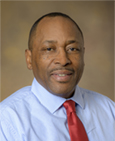 |
Edward Ramsey, MD | Addiction Medicine Fellow My training at the UArizona Addiction Medicine Program has prepared me to practice independently and confidently and renewed my love for medicine. I regained a sense of value to society and self-worth as it relates to what I can offer to patients afflicted with substance use disorders. I now work in Houston, TX at Contemporary Medicine and Associates, a private practice that specializes in the diagnosis and treatment of substance use disorders. |


